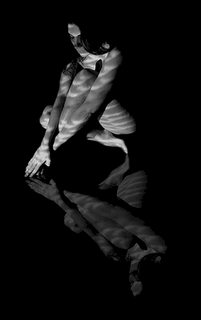The other evening, I watched a wonderful Spanish film, “El La Ciudad Sin Limites” (”City Without Limits”), directed by Antonio Hernández, which tells the story of a Madrid family that convenes in a Paris hospital to be present for the end-state treatment of a dying husband and father. Among many powerful details rendered by brilliant actors, masterful directing, and stunning cinematography was a passing reference to the “city without limits,” a phrase used to describe a city that has begun growing wildly in order to thwart the attempt of certain citizens to escape it by train. It is at once a reference to the cancer that has begun growing “without limits” in the brain of the dying father and a political metaphor of oppression that also belongs to the story—chilling in both respects, this idea that something dark, something evil, may begin spawning itself until one has no way out.
One thing that struck me about this reference was the fact that, despite its obvious power, it comes and goes in the film with no more attention to itself than a sigh. It is offered as an aside in a note penned by the dying man to an old friend, an obvious homage to a book written by the friend bearing the phrase as its title that also shows up in the story, and I was touched by the poetic self-restraint of the writers, Enrique Brasó and director Antonio Hernández. Clearly, they trusted their audience to get the metaphor without repetition or explanation, and I thought that American screenwriters would do well to follow their example.

The other thing that struck me about the “city without limits” is how apt the metaphor can be experientially. Sometimes, when we feel trapped in a situation, we may feel that we are on a train that simply can’t convey us to safety, that the situation has taken on a life of its own and is now growing without limits. No matter what we do, we find we are still within the city of our suffering. The train is going as fast as it can, but the city has no limits.
When I talk to students who are feeling this way, I offer them something that I’ve learned—that every city has limits, and that there is always a way out. One may be on the wrong train—that is, a new and surprising track may be needed, but such tracks become available the moment we become willing to doubt and question the power of the problem. The track that cannot escape the city, it turns out, is the track of a one-track mind, a belief, a way of being that leads to a train of thought and action and fact that then seem to exist independently of the beholder. Our suffering becomes convincing, overtakes our desire, and then seems to move with a life and authority of its own. Nevertheless, its roots lie within ourselves. The way out of the city of suffering, in the end, is as close as our willingness to question what we have taken for granted, a questioning that has within itself the power to grant something else.


